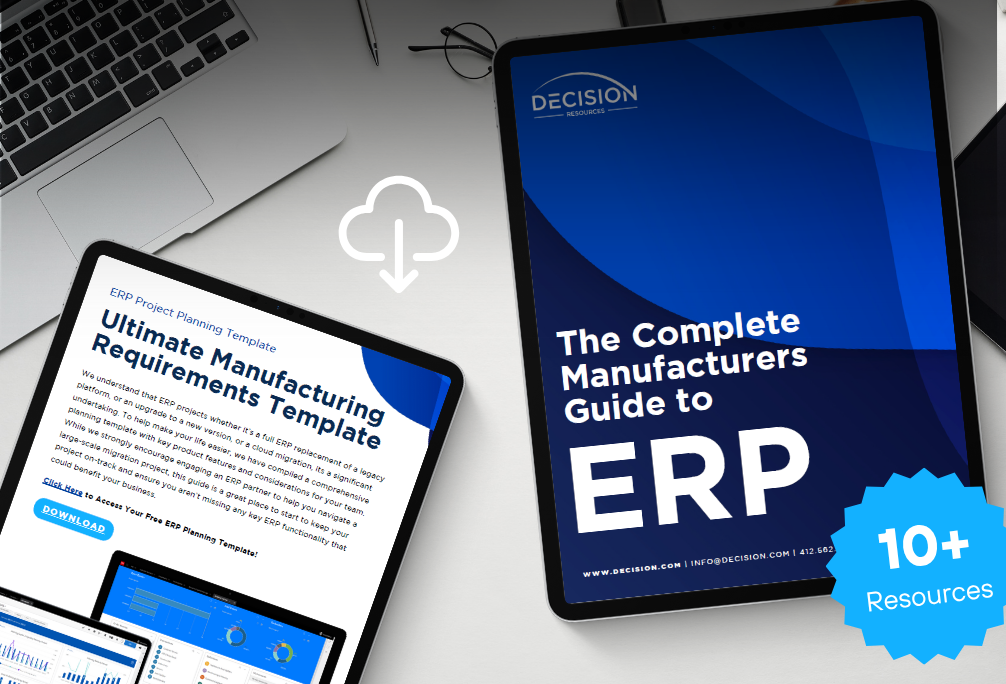Download The Complete Manufacturers Guide to ERP
In this guide, we share a free project planning document for delivering a successful ERP transformation, industry resources, best-practices, a comprehensive ERP project checklist for manufacturers, and more!
Get Your Copy Today




